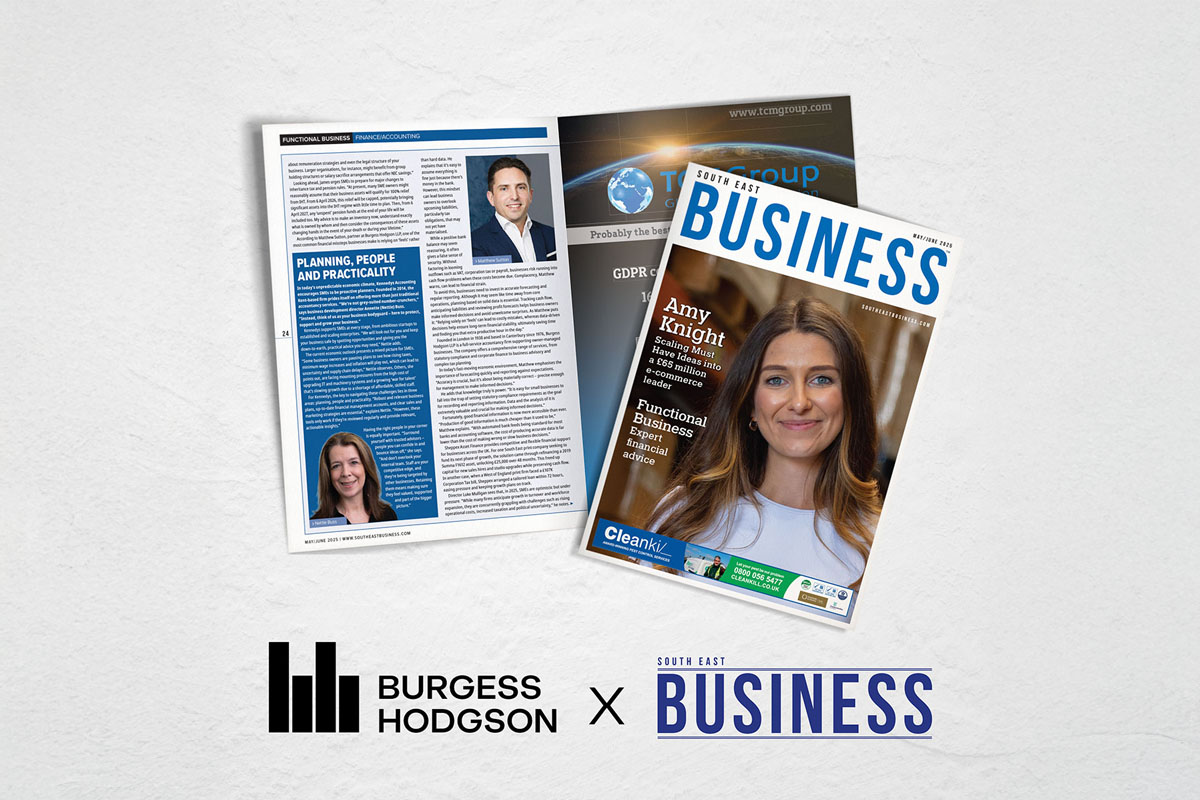
January: It’s time to consider cash flow strategy
Posted: Insights
Posted: Insights

In a year where uncertainty remains the only constant, small and medium-sized enterprises (SMEs) must sharpen their decision-making more than ever before. At Burgess Hodgson LLP, we work with hundreds of owner-managed businesses and see first-hand the pressures SMEs are under – especially in the South East, which is home to nearly 40% of the UK’s SME population.
From changes to the National Minimum Wage and National Insurance to updates in the Employment Rights Bill, business owners are being forced to reassess their operating models. And that’s without even factoring in inflationary pressures and consumer belt-tightening that are shrinking revenues across sectors.
Here in Kent, our clients span agriculture, hospitality, construction, and professional services. Each is facing a unique set of hurdles:
These are not passing challenges. They’re deep structural and behavioural shifts that require not just awareness, but proactive planning.
So, what’s the solution? It starts with what might sound like the basics: forecasting and fast reporting. And yet, in many SMEs, this remains underutilised or poorly executed.
I’m not talking about complex modelling or multi-tab spreadsheets. What matters is producing information that is “materially accurate” – good enough to base decisions on. For instance, knowing that if sales hit £X, profit is viable. Then asking: What happens if we fall 20% short? What if we exceed it? Do we reinvest, pay bonuses, or pay down debt?
The right time to ask those questions is not after your year-end. It’s every month.
Too many businesses still rely on gut feeling: “There’s money in the bank, so we must be doing okay.” But that logic doesn’t account for VAT due next month, corporation tax around the corner, or payroll at month-end.
It’s vital to match today’s bank balance with tomorrow’s liabilities. Forecasting your cash flow and financial obligations protects against sudden strain – or worse, insolvency triggered by overlooked tax bills.
The good news? Producing this data has never been easier or cheaper. Most banks now offer automated feeds into cloud accounting platforms. A process that once took days now takes minutes. Yes, there’s a cost to organising and interpreting the data, but that cost pales in comparison to the price of bad or delayed decisions.
In a volatile economic environment, slow decision-making is the enemy. The businesses that survive and thrive are those that act quickly – not reactively, but responsively, using reliable financial data.